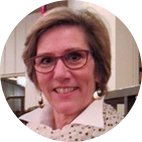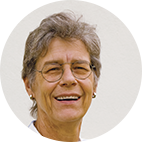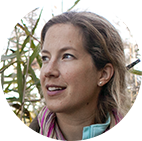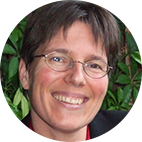Plenary Sessions
Plenary Session on Sea Level Rise as a Threat to Estuaries and Coasts
Time: Monday, 9 November | 3:30 - 5:00 pm
Location: Oregon Convention Center - Ballroom 201-202
Sea level rise (SLR) is a well-accepted result of climate change, yet predictions for its timing and extent are highly uncertain at the ocean basin and local coastal scale. The ability to plan and design coastal defenses, relocation strategies for critical infrastructure, and protection of natural resources is compromised by this uncertainly, as well as by a lack of broad public and political support to carry out the necessary mitigations. This plenary will explore a range of solutions that includes engineering designs to protect coastal resources and increase resiliency; natural defenses that can protect the coast and estuaries; and practical solutions for meeting the challenges of SLR. Resilient solutions will be described in the context the pros and cons of strictly fortified solutions versus innovative alternatives such as those explored in the contests Changing Course and Rebuild by Design. Natural shoreline defenses will propose methods for restoring natural infrastructure such as wetlands, dunes, living shorelines, and open space, which can produce a host of benefits to communities in addition to flood protection, including clean water, habitat for fish and wildlife, increased opportunities for recreation and tourism, and savings for taxpayers nationwide. Political will and methods to increase coastal resilience will be examined through new and innovative mechanisms for financing, managing land ownership, integrating with other coastal protection and restoration programs that provide specific forward thinking approaches to important issues surrounding SLR. These strategies will include: gaining the political and public support needed to achieve coastal protection and resiliency; identifying new coalitions beyond traditional conservation and science communities that are needed; and harnessing natural processes be harnessed to increase coastal resilience.
Plenary Presentations

|
Fortifying For a Resilient and Sustainable Future
Sandra Knight
WaterWonks LLC, Washington, DC and University of Maryland, College Park, MD
|

|
Natural Defenses from Coastal Hazards
Patricia Glick
National Wildlife Federation, Seattle, WA
|
 |
Searching for the Unicorn: Science and Decision Making on SLR and other Non-Controversial Issues
Margaret Davidson
National Ocean and Atmospheric Administration, Silver Springs, MD
|
Moderator
Andrea E. Copping, Pacific Northwest National Laboratory, Seattle WA
Plenary Session on Multiple Stressors in Coastal Ecosystems
Time: Tuesday, November 10 | 3:30 - 5:00 pm
Location: Oregon Convention Center - Room Ballroom 201-202
For decades coastal ecosystems have undergone environmental change as a result of synergistic effects from human activities such as industrialization, development, burning of fossil fuels, and agriculture. Issues such as eutrophication, climate disruption, ocean acidification, invasive species, and loss of habitat are significant concerns unto themselves, but when occurring together can amount to “wicked” problems that appear overwhelming and have no obvious solution. This session will explore the notion that the familiar scientific approaches to environmental issues must be abandoned in favor of more collaborative and integrative approaches to science and stewardship practices that are inclusive of broader societal perspectives. This also requires changes in communication and public engagement so that experts, decision-makers and stakeholders together define and find solutions to the multiple stressor problems we face. The scientific community can and must learn and build from success stories and communicate these successes to the public. Together we can take actions that will have meaningful consequences for the long-term sustainability and resiliency of coastal ecosystems and all of us who rely on them.
Plenary Presentations

|
Designing the Coast for the Future to Effectively Deal with Multiple Stressors
Jerry Schubel
Aquarium of the Pacific, Long Beach, CA
|

|
Triaging the Coastal Ocean
Robinson W. Fulweiler
Boston University, Boston, MA
|

|
Communicating Multiple Stresses: Countering Overwhelm, Engendering Hope
Susanne Moser
Susanne Moser Research & Consulting, Santa Cruz, CA and Woods Institute for the Environment, Stanford University, Stanford, CA
|
Moderator
Joseph Needoba, Oregon Health & Science University, Portland, OR
|